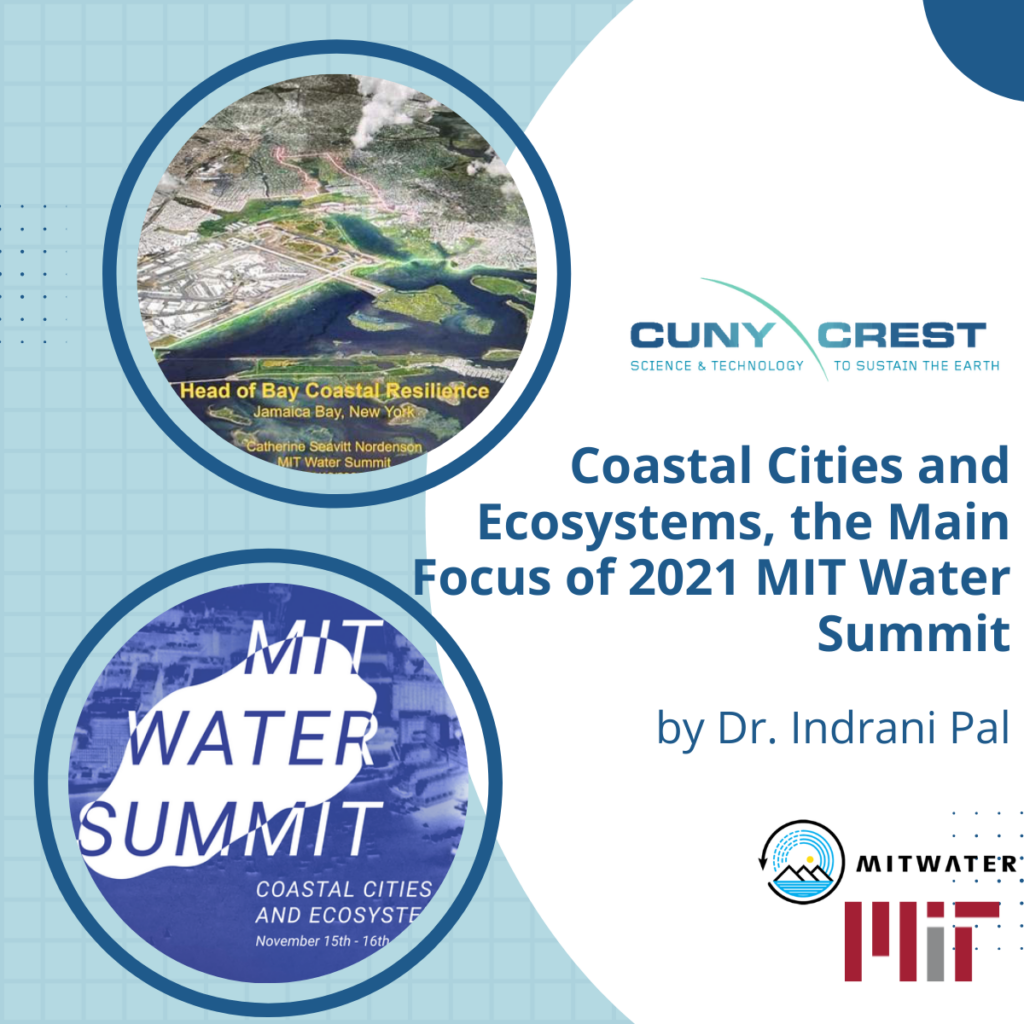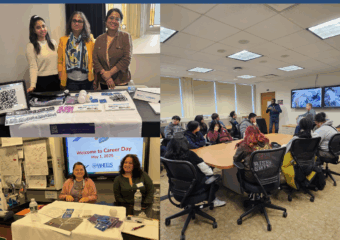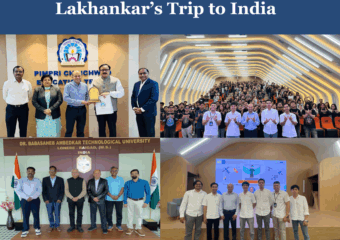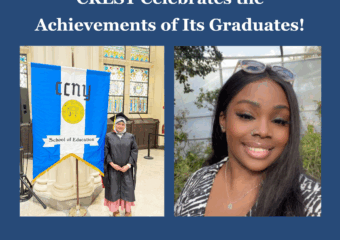Coastal Cities and Ecosystems, the main focus of 2021 MIT Water Summit
Coastal Cities and Ecosystems, the Main Focus of 2021 MIT Water Summit
by Dr. Indrani Pal
Annually, the Massachusetts Institute of Technology (MIT) holds the MIT Water Summit which is hosted by the MIT Water Club. The MIT Water Summit is an annual two-day event in which different leaders from industry, government, and the scientific community come together to discuss the challenges and opportunities within the water sector. This year the event took place in-person and virtually on November 15th and 16th, 2021 respectively. Some major topics that were discussed during the summit were Coastal and Ocean Agriculture, Coastal Ecosystems, and Coastal Conflict and Governance.
Dr. Indrani Pal was able to attend the conference both days. The first day being in person at the MIT campus in Boston, MA. Dr. Pal recollects her time at the Water Summit and was truly inspired by some of their keynote speakers and presenters. Some of the most memorable discussions during the Water Summit were the Coastal Agricultural Panel, the Keynote led by Dr. Samantha Montano, and the Keynote given by Dr. Kelsey Leonard.
The Coastal Agricultural Panel was hosted by Trey Angera, Dr. Joyce Chen, and Dr. Hauke Kite-Powell. Trey Angera is the General Counsel and COO of the Springtide Seaweed, LLC. Springtide Seaweed is the largest fully integrated organic seaweed farm and producer in North America. Dr. Hauke Kite-Powell is a Research Specialist at the Marine Policy Center of the Woods Hole Oceanographic Institution. Dr. Joyce Chen is an Associate Professor in Agricultural Environmental, and Development Economics at The Ohio State University. Dr. Pal recalls the panel because they discussed topics such as the importance of making technology accessible to different communities. They discussed how environmental innovations require communications from 3rd parties to deploy.
The Keynote led by Dr. Samantha Montano gave a crucial talk on approaches to natural disasters and emergency management that impacted different communities. Dr. Montano is an Assistant Professor at the Massachusetts Maritime Academy. She is also the author of the new book, Disasterology: Dispatches from The Frontlines of The Climate Crisis. During the Keynote, Dr. Montano discussed her time working with survivors of Hurricane Katrina and how it inspired her to focus on what causes an extreme event (such as a hurricane) and the best ways to deploy efforts leading to recovery.
The Keynote led by Dr. Kelsey Leonard focused on how technology solutions changed throughout different generations. Dr. Leonard is a Canada Research Chair in Indigenous Waters, Climate and Sustainability and an Assistant Professor in the Faculty of Environment at the University of Waterloo. She discussed how her ancestors would have reacted to different water risk management challenges as opposed to how modern peoples would react to the same challenges.
The MIT Water Summit also introduced Dr. Pal to X, The Moonshot Factory developed by Google. X is a group of entrepreneurs and innovators that aim to build technologies to improve the lives of billions. Their goal is to have a 10x impact on the world’s most intractable problems, not just 10% improvement.
To summarize what Dr. Pal took away from The MIT Water Summit, it is easier to find and diagnose problems rather than deploy solutions. Water insecurity is oftentimes invisible and needs to be better supported by the right kind of data and communication approaches. Dr. Pal determined that deploying solutions is one of the hardest problems because it involves peoples, cultures, politics, etc, and hence there isn’t a one size fits all approach. “Finding a problem is easy, development of a solution is hard but hardest of all is deployment of it because we largely define water risks as we read in textbooks or in the classrooms, not how people see/feel that. Solutions should be made taking care of perspectives of those who the solutions are for ”, explains Dr. Pal.




